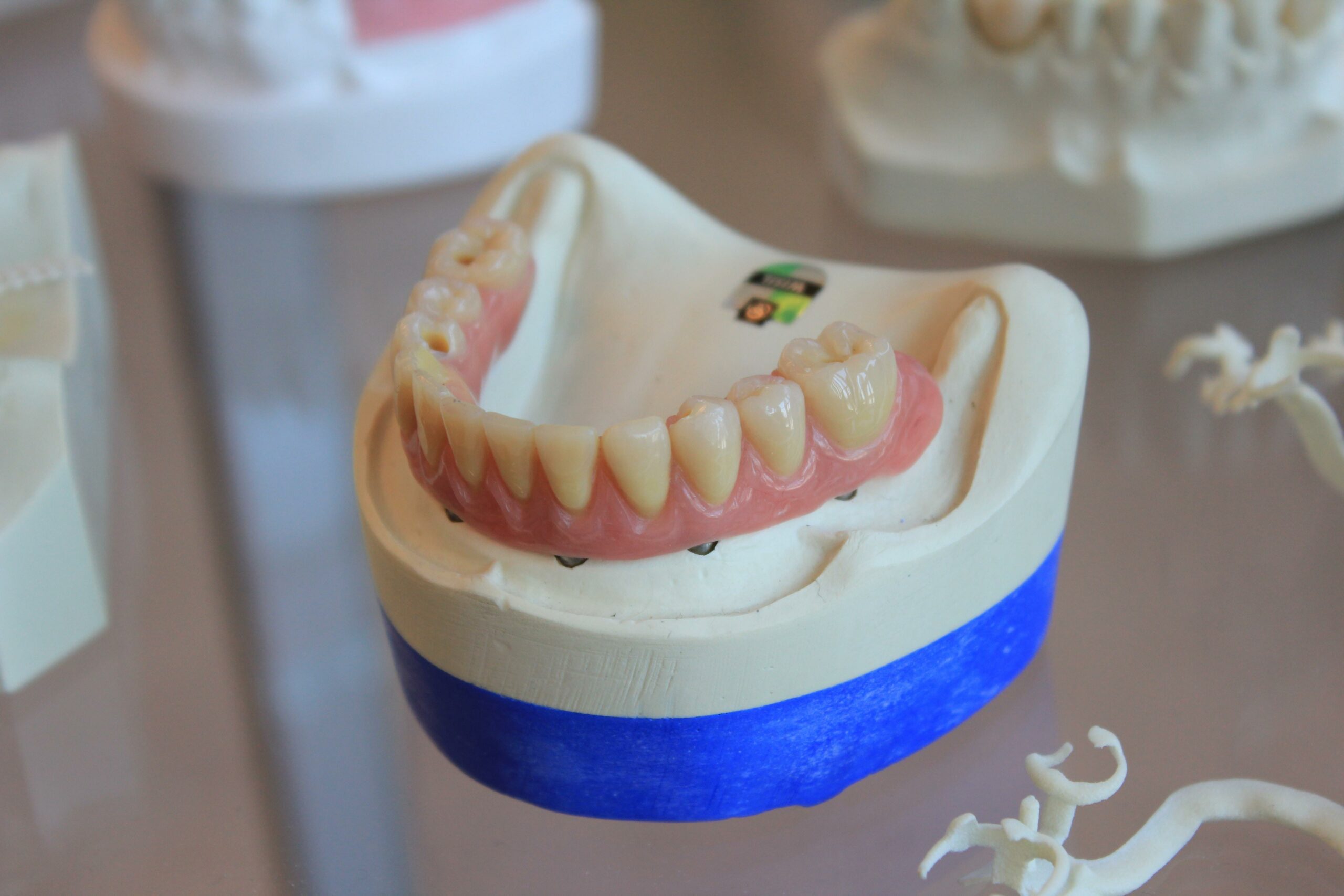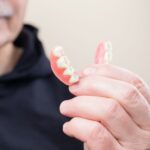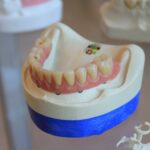Are you tired of struggling with ill-fitting dentures that hinder your daily activities and confidence? Look no further! In this article, we have teamed up with a seasoned dental professional and prosthodontics expert with over 15 years of experience to bring you the top tips for maintaining dentures. From personalized solutions to common problems faced by denture wearers, our expert will take you on a journey to optimize your denture care, ensuring a comfortable and long-lasting experience. Get ready to discover invaluable knowledge and expert advice that will revolutionize your denture maintenance routine. Let’s dive in and unlock the secrets to preserving the functionality and appearance of your dentures, enhancing your oral health and overall quality of life.

Maintaining Dentures
As a denture specialist with years of experience in prosthodontics, I understand the challenges that come with wearing dentures. It’s essential to maintain them properly to ensure their longevity, comfort, and functionality. In this article, I will share my expert advice and top tips for maintaining dentures, helping you optimize your denture care routine and improve your overall oral health.
Cleaning Your Dentures: A Crucial Step in Maintenance
Cleaning your dentures is an essential part of maintaining their appearance and functionality. Proper cleaning helps prevent the buildup of plaque and bacteria, ensuring the longevity of your dentures and promoting good oral health. So, how should you clean your dentures effectively?
Rinse after meals: After eating, remove your dentures and rinse them under running water to remove any food particles and debris.
Brush with a denture brush: Use a soft-bristled denture brush and mild denture cleaner to gently brush all surfaces of your dentures. Avoid using regular toothpaste, as it can be abrasive and damage the denture material.
Soak in a denture cleanser: Soaking your dentures in a denture cleanser solution helps remove stubborn stains and disinfects them. Follow the manufacturer’s instructions for the recommended soaking time.
Handle with care: While cleaning your dentures, make sure to hold them securely to avoid dropping and damaging them. You can place a towel or basin of water in the sink to cushion them in case they slip.
Brush your gums and tongue: After removing your dentures, take the time to brush your gums, tongue, and any remaining natural teeth with a soft-bristled toothbrush. This helps remove plaque and stimulates blood circulation in your oral tissues.
Remember, maintaining dentures is not just about cleaning them regularly. It also involves taking care of your oral hygiene and ensuring a proper fit.
“Regular cleaning and proper handling are key to maintaining dentures in optimal condition.”
Handling Denture Stains: Tips for a Brighter Smile
Over time, dentures may develop stains due to various factors like food, drink, and tobacco use. These stains can affect the appearance of your dentures and give the impression of poor oral hygiene. Fortunately, there are several ways to tackle stubborn stains and keep your smile bright.
Brush and rinse: As mentioned earlier, regular brushing and rinsing after meals can help prevent stains from setting in. However, sometimes stains can be more stubborn and require additional measures.
Try a denture stain remover: There are denture stain removers available in the market that can help combat tough stains. Follow the instructions provided on the product packaging for effective use.
Consult your dentist: If over-the-counter stain removers don’t work, consult your dentist. They may recommend professional cleaning or provide specialized stain removal treatments to restore the brightness of your dentures.
Remember, prevention is always better than cure. Avoiding foods and drinks known to cause staining, such as red wine, coffee, and tea, can help keep your dentures looking brighter for longer.
“Stains on dentures can be effectively addressed with regular brushing, rinsing, and the use of denture stain removers.”
Preventing Denture Damage: Maintaining their Longevity
Proper denture maintenance includes taking precautions to prevent damage. Dentures can be quite delicate, and even small accidents can lead to cracks, chips, or broken clasps. Follow these tips to ensure the longevity of your dentures:
Handle with care: When handling your dentures, do it over a folded towel or a basin of water to minimize the impact if they slip from your hands. Avoid using harsh chemicals or excessive force when cleaning them.
Avoid hot water: Exposing your dentures to hot water can cause them to warp or lose their shape. Always use lukewarm water for cleaning or rinsing your dentures.
Remove and store properly: When not wearing your dentures, keep them in a denture case or a container filled with water or denture cleaning solution. This prevents them from drying out and helps maintain their shape.
Regular check-ups: Schedule regular check-ups with your dentist to ensure your dentures fit properly and to address any signs of wear and tear. Your dentist can make necessary adjustments or recommend replacement if needed.
Remember, mishandling or neglecting your dentures can result in costly repairs or the need for new ones. By adopting preventive measures, you can extend the lifespan of your dentures and avoid unnecessary expenses.
“Proper handling and preventive measures are vital to maintaining the longevity of your dentures.”
Conclusion
Maintaining dentures is a crucial aspect of ensuring their longevity, comfort, and functionality. By following these expert tips, you can optimize your denture care routine and enjoy a healthy and confident smile. Remember to clean your dentures regularly, tackle stains effectively, and handle them with care to prevent damage. And don’t forget to schedule regular check-ups to ensure your dentures fit correctly and address any concerns promptly.
“With proper care and attention, you can enjoy the benefits of well-maintained dentures for years to come.”
The Difficult Truth About Dentures. When it comes to dental health, we often overlook the harsh realities of wearing dentures. Many people assume that dentures are a quick fix for missing teeth, but the truth is far more complicated. Dentures can be uncomfortable, ill-fitting, and require constant adjustments. Moreover, they can affect your ability to eat and speak properly, diminishing your overall quality of life. If you’ve been considering dentures as a solution, it’s crucial to understand the challenges that come with them. Discover the difficult truth about dentures here: The Difficult Truth About Dentures.
FAQ
Question 1: How often should I clean my dentures?
Answer 1: It is recommended to clean your dentures at least twice a day, just like you would with natural teeth. Regular cleaning helps remove plaque, bacteria, and stains, ensuring optimal oral hygiene.
Question 2: What is the best way to clean dentures?
Answer 2: To clean your dentures effectively, start by removing any food particles by rinsing them under running water. Then, brush your dentures using a soft-bristle toothbrush and a non-abrasive denture cleaner or mild dish soap. Avoid using abrasive materials or toothpaste, as they can cause scratches on the denture surface. Rinse your dentures thoroughly after cleaning to remove any residue.
Question 3: Should I wear my dentures while sleeping?
Answer 3: It is generally recommended to remove your dentures while sleeping to give your gums and mouth tissues a chance to rest. Removing your dentures at night also allows for proper cleaning and soaking in a denture solution, which helps maintain their shape and prevent bacterial buildup.
Question 4: How do I prevent denture stains?
Answer 4: To prevent denture stains, it is important to practice good oral hygiene and clean your dentures regularly. Avoid drinking highly pigmented beverages such as coffee, tea, or red wine, as they can stain the denture material. Additionally, rinse your mouth and dentures after consuming foods that are known to cause staining, like berries or tomato-based sauces.
Question 5: Can I adjust or repair my dentures at home?
Answer 5: It is not recommended to adjust or repair your dentures at home. Dentures are custom-made to fit your mouth and any adjustments or repairs should be done by a dental professional. Attempting to adjust or repair dentures on your own can lead to further damage or discomfort. If you experience any issues with your dentures, schedule an appointment with your dentist or prosthodontist for proper evaluation and treatment.
- Unlock Water’s Symbolism: A Cross-Cultural Exploration - April 20, 2025
- Identify Black and White Snakes: Venomous or Harmless? - April 20, 2025
- Unlocking Potential: Origins High School’s NYC Story - April 20, 2025















